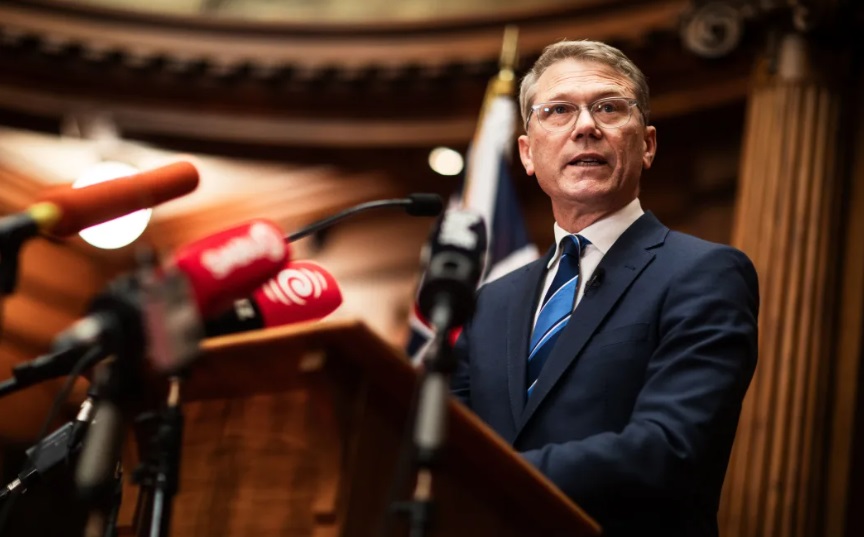
The future of the Fair Digital News Bargaining Bill had been uncertain, having been introduced by the former Labour government.
Former Media Minister Melissa Lee had previously said National did not support the bill in its current form, but after worsening economics for the industry led to Newshub's closure and hefty staff cuts at TVNZ, she suggested it might be progressed with changes.
The coalition had been considering the legislation and Media and Communications Minister Paul Goldsmith on Tuesday confirmed it would progress, with amendments.
"I have looked closely at the design of the legislation and will be changing the approach to align more closely with the Australian digital bargaining code to give all companies greater certainty," he said.
One of the key changes would be giving the minister the power to decide which digital platforms were covered by the bill.
"This will enable the minister to decide which digital platforms are captured by the bill, allowing the government to manage unintended consequences. We'll also ensure an appropriate independent regulator is appointed as the Bill's Authority," Goldsmith said.
The minister said the government would also tweak eligibility criteria for the New Zealand Screen Production rebate for local shows with a strong industry and cultural value, "like our longest-running drama Shortland Street".
He said he had also spoken to NZ On Air about the role it could play in supporting local news and current affairs.
It has committed to reporting back to Cabinet on progress by the end of the year.
"All of these short-term measures will be in effect by the end of this year. On a wider reform programme, proposals for a truly modern and streamlined regulatory landscape are currently under development and the government will be announcing next steps later in 2024."
Act 'agrees to disagree'
However, the Act Party has invoked the 'agree to disagree' provision in its coalition agreement with National and would not support the bill, meaning the government will need to rely on the support of other parties for it to pass.
In a statement, leader David Seymour said the bill was "a sop".
"The Fair Digital News Bargaining Bill will not solve the fundamental challenges facing traditional media: it's never been easier to share information online, but people don't want the product on offer."
The news industry has struggled with declining revenues for years, with classified advertising soaked up by new online services allowing direct sales and trade, while internet search giants and social media offer up headlines and links.
With the growth of the internet, some news sites also chose to offer news online for free, in some cases intended as a public good - but without the advertising revenue to back it up the newspapers and other mediums that had supported this kind of approach meant funding streams dried up.
Meanwhile, the more recent explosion of television streaming services has tanked the advertising market for terrestrial television, and associated TV news media.
Seymour said the media companies were claiming they needed the government to step in "because internet companies are exploiting them. In my experience, it's not always clear who needs who the most. Media firms get traffic from Google and Meta, they can't prove they're not benefiting from the internet firms".
He said the changes being made to the bill by the coalition were making it worse.
"The involvement of an elected Minister in deciding who ultimately gets what takes away one of the main benefits of the whole scheme: that it doesn't involve politicians. Act worries that a bill aimed at subsidising traditional media could undermine the separation between political actors and journalists who are meant to be an independent voice in our democracy."













